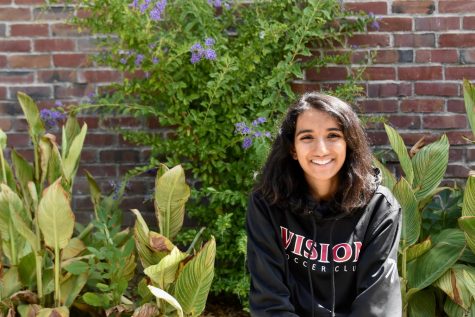Keeping up with the news
Teens must follow the news closely to help create a better future for our generation
February 6, 2019
Like. Share. Retweet. Hashtag. Our generation is consumed by social media and technology, constantly updated on the newest memes and hottest clothing trends. Despite the accessibility and convenience technology brings to our life, we sometimes forget to keep track of more important matters – namely, the news.
Ranging from Twitter to TV channels to NPR, there are countless media platforms around the world that can provide us with news, and thousands of events being reported. However, many students remain woefully ignorant about what is happening in our world.
According to the American Press Institute, only one-third of teens actually pick up newspapers, and many teens spend less than five minutes a day browsing online news. If we want to be educated individuals capable of making important decisions and taking a stand for what we believe in, we must actively follow the news.
Granted, the news is often filled with disappointing information. In fact, according to a report released by Common Sense Media, which interviewed 900 children ages 10 to 18, 63 percent of children claimed that reading the news made them feel angry or depressed.
However, the news is an undeniably valuable tool. It informs the public about what’s happening in their community and how it may affect them. It serves as a mechanism to police the powerful and ensure their actions align with the public’s best interests. It showcases the problems our global community encounters and the developing solutions. And most importantly, it enables us to form our own opinions about events and become not only more aware individuals, but also civically engaged.
Staying updated with the news does not mean reading about Ariana Grande’s latest Pokemon tattoo or Kanye West’s newest Yeezy sneakers. It means understanding Brexit or President Trump’s decision to pull the U.S. out of Syria and what it means for groups involved. On a local level, it means understanding the construction projects at Vallco Mall or Measure CC and their affects on Cupertino residents. And after understanding the facts, it means developing your own opinions on these issues and voicing concerns through letters, discussions and, as soon as you are eligible, through voting.
In our government, most politicians, whether they be Congressmen, Senators or Supreme Court Justices are mostly significantly older than us. Our system is built in a way where older people run the show.
And the problem with a system dominated by older people is that younger generations, including high schoolers, often have no say in changes that will most definitely affect them. Issues like climate change, the opioid crisis and the refugee crisis are going to become increasingly prevalent in the upcoming decades when today’s high schoolers are tax-paying, voting citizens. But important decisions concerning these problems are being made now, and we should be paying attention.
Even though most high schoolers aren’t allowed to vote, our perspectives and desires are still valuable and should be considered. We must continue to discuss, debate and contribute our ideas, which in turn will lead to more active and educated voters in the future.
According to the same Common Sense Media survey, 74 percent of kids interviewed believe that the news should more actively feature the younger generation, and 69 percent feel like the news has “no idea” about the experiences of younger generations. One simply needed to watch Congress “grill” Mark Zuckerberg about how to use Facebook to recognize how out of touch those who govern us are about the day-to-day realities of are lives that are only going to exponentially advance.
High schoolers need to be able to express their opinions now if they want to see the desired change in their future. And news is the essential foundation. Understand what’s happening in the world. Understand why it matters. Understand your perspective on it.
Only after we understand what’s currently happening in the world can we improve our world for the future.
Although this may seem like a stretch, if harnessed correctly, the youth have tremendous amounts of power and influence.
According to the U.S. Department of Education, there are over 56 million high school students in the United States. 56 million people, who — thanks to ever-increasing technological advances — are more connected than any generation before.
Our generation helped make Kylie Jenner the youngest ever billionaire. Our generation got an egg to be the most liked picture on Instagram (49,523,244 likes and counting). And our generation also organized thousands of schools and students to participate in a unified walkout to honor the Marjory Stoneman Douglas High School shooting in Parkland, Fl.
Although relatively inexperienced, when high schoolers and other young minds come together, we are able to achieve remarkable things. Especially in an affluent area like Cupertino, where the student population is so driven and has so many opportunities, we have all the tools to do things that truly matter and can truly impact our community (such as MVHS alumnus Dhanurjay “DJ” Patil becoming the first U.S. Chief Data Scientist). But before this can happen, we must understand what matters to us and what impacts us on a personal level, and we can’t do that without actively engaging with news.
A lot of us are on social media, and all it takes is a few seconds to follow CNN on Instagram or subscribe to NBC on Snapchat. We can easily interact with the organizations of our choice in an accessible and non time-consuming manner. We can turn ourselves into much more educated and aware individuals, capable of forming our own perspectives on issues that matter. We can be exposed to different ideas and viewpoints and broaden our own way of looking at things.
And if we can use our knowledge of the news to develop opinions and ideas, we can take the first step to creating a better world for our future selves.


















